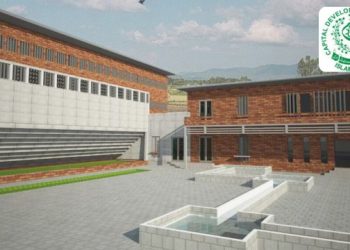ISLAMABAD: The Supreme Court (SC) has declared the Supreme Court (Review of Judgments and Orders) Act 2023 unconstitutional on Friday, asserting that it infringes upon the established constitutional principles.
A three-judge bench of the SC, comprised of Chief Justice of Pakistan Umar Ata Bandial, Justice Munib Akhtar, and Justice Ijazul Ahsan, had previously reserved its judgment on June 19. The outcome of this case was anticipated to impact the Election Commission of Pakistan’s (ECP) review regarding the April 4 verdict that set May 14 as the date for the Punjab Assembly elections.
The legislation aimed to enhance and reinforce the SC’s ability to review its judgments and orders. It expanded the jurisdiction of the court by allowing appeals under Article 184(3), which grants the SC authority to intervene in matters of public importance concerning the enforcement of fundamental rights. The law essentially extended the review scope similar to that of Article 185, which grants appellate jurisdiction to the highest court.
In a detailed ruling, the court determined that the Act was inconsistent with and beyond the limits of the Constitution, and therefore, it was rendered null and void. The ruling emphasized that any attempt to intrude upon the SC’s powers and jurisdiction, including its review authority, through ordinary legislation, would be a misinterpretation of the Constitution.
The judgment further clarified that there was no constitutional mandate empowering Parliament to broaden the SC’s review jurisdiction under Article 188. Moreover, the Act did not expand the existing review jurisdiction but rather established an entirely new appellate jurisdiction lacking constitutional basis or authorization.
The court affirmed that any legislation undermining judicial independence would be inherently unconstitutional. It emphasized that a constitutional amendment would be required to convert the review jurisdiction into appellate jurisdiction, as ordinary legislation cannot modify the Constitution.
The verdict’s impact on the disqualification cases involving former Prime Minister Nawaz Sharif was also addressed. Outgoing Law Minister Azam Nazeer Tarar asserted that the judgment would not affect Nawaz Sharif’s cases, citing the Elections Act amendment that limited disqualifications to five years with retrospective effect.
In a move that raised questions about timing, the verdict was delivered after the dissolution of the National Assembly, preventing a potential referral of the Act back to the Parliament for reconsideration.
The Act, titled the Supreme Court (Review of Judgments and Orders) Act 2023, was introduced amid disagreements with the judiciary. While the government argued it would bolster the SC’s review powers, the opposition saw it as a means to reverse Nawaz Sharif’s disqualification.
The Act aimed to expand the review jurisdiction of the SC, granting the right to appeal within 30 days of judgment in suo motu cases. This provision would have enabled individuals, like Nawaz Sharif, who were disqualified under the court’s original jurisdiction, to appeal their disqualifications.
The verdict coincided with Prime Minister Shehbaz Sharif’s announcement that Nawaz Sharif would return to Pakistan the following month, although no specific date was given.
The Supreme Court’s verdict comes in the wake of recent political developments and discussions surrounding the judiciary’s role and the balance of power in Pakistan. Critics have argued that the Act could potentially undermine the separation of powers and erode the judiciary’s independence by expanding its review jurisdiction beyond its established scope.
Legal experts and constitutional scholars have weighed in on the decision, with some expressing concern about the implications of attempting to modify the judiciary’s authority through ordinary legislation. The verdict has sparked debates about the appropriate mechanisms for amending the Constitution and the potential consequences of legislative changes on the country’s democratic framework.
In response to the ruling, legal and political circles have been abuzz with analyses and interpretations. Some legal scholars assert that the Supreme Court’s verdict reaffirms the importance of upholding the Constitution’s integrity and the need for a proper constitutional amendment process for significant changes to judicial powers.
Meanwhile, proponents of the Act had contended that it aimed to provide an effective mechanism for reviewing judgments and ensuring justice, especially in cases involving fundamental rights. The Act’s advocates argued that it was designed to address certain legal gaps and provide a means for reevaluating decisions that could have far-reaching societal consequences.
The political landscape remains dynamic as leaders from various parties offer their opinions on the verdict. Some politicians have lauded the Supreme Court’s decision as a safeguard against potential encroachments on the judiciary’s autonomy, while others have voiced disappointment, viewing the ruling as a setback to efforts aimed at enhancing the review process.
The fate of pending cases that were set to be impacted by the Act’s provisions is now uncertain. Legal experts are discussing the potential legal implications for individuals who were seeking to appeal their disqualifications under the Act’s expanded review jurisdiction.
As the nation absorbs the ramifications of the Supreme Court’s ruling, the larger conversation about the balance of power, constitutional amendments, and the role of the judiciary in shaping Pakistan’s governance structure continues to evolve. The decision has sparked not only legal discussions but also broader dialogues about the checks and balances necessary to maintain a healthy democracy.
The immediate and long-term effects of this verdict are yet to be fully understood, but what is clear is that the discussion surrounding the separation of powers, the Constitution, and the role of the judiciary will remain at the forefront of Pakistan’s political and legal discourse in the days and weeks to come.
(Islamabad51-Newsdesk)














